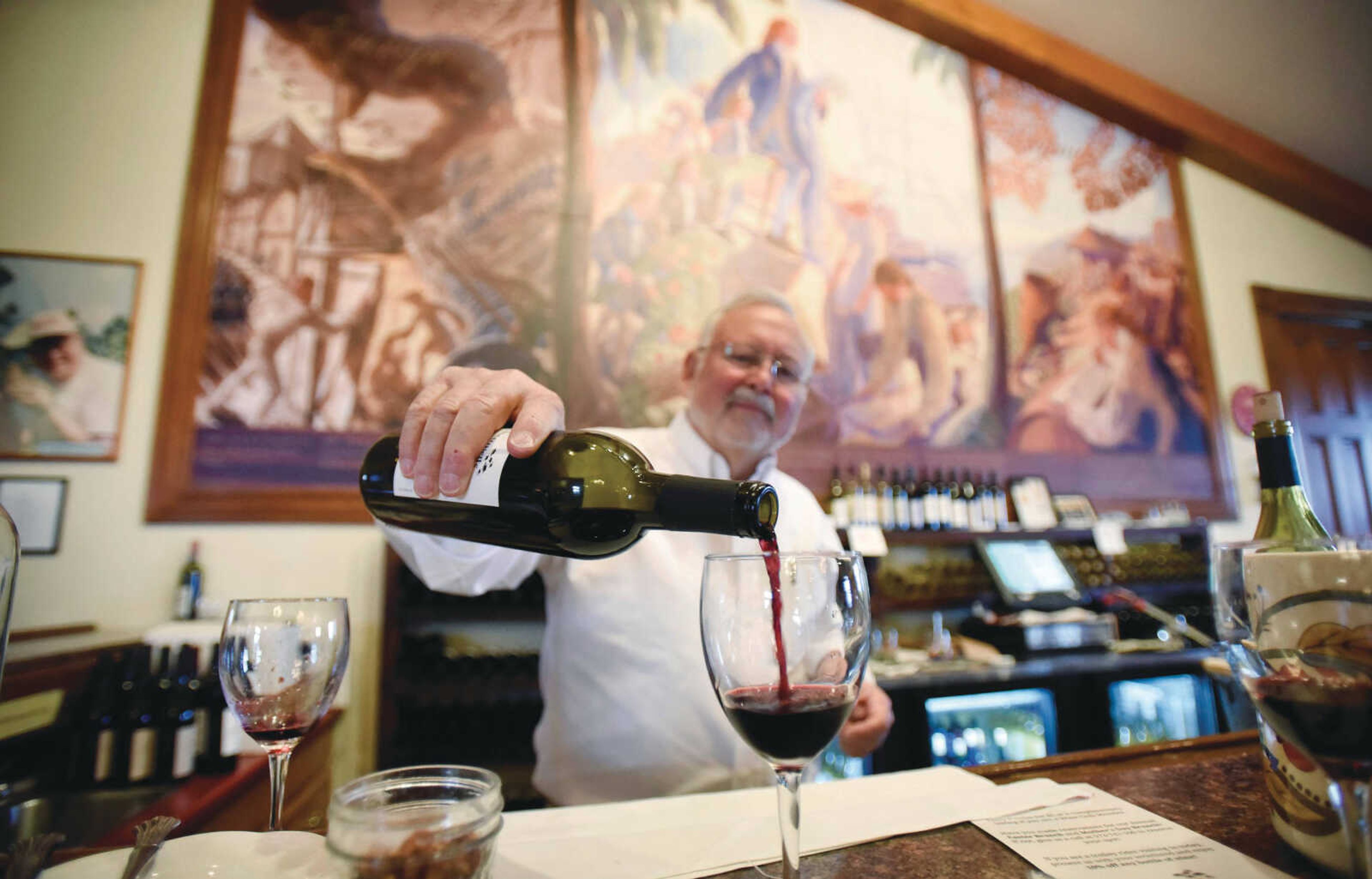Ste. Genevieve County: Luxurious amenities, award-winning wine abound at Chaumette Vineyards & Winery
Hank Johnson and his wife, Jackie, bought the property that houses Chaumette Vineyards & Winery in 1990. Although, at the time it was simply a place to retreat on the weekends. "My wife and I had no plans for doing any of what you see. It was a case of we both had jobs in the city in St. Louis and we just needed a place to get away on weekends," Hank Johnson says...
Hank Johnson and his wife, Jackie, bought the property that houses Chaumette Vineyards & Winery in 1990. Although, at the time it was simply a place to retreat on the weekends.
"My wife and I had no plans for doing any of what you see. It was a case of we both had jobs in the city in St. Louis and we just needed a place to get away on weekends," Hank Johnson says.
For the first few years they owned the property they built a lake and camped out on the weekends, entertaining friends and enjoying their time away from the city life.
But in 1992, Johnson decided he was growing bored with mowing one of his fields in particular, and thought it might be better suited for another purpose -- growing grapes.
"We planted grapes kind of on a lark," he says. "I'd always been a big wine fan, interested in wine for all of my adult life really, and so this idea of having my own vineyard sounded pretty interesting."
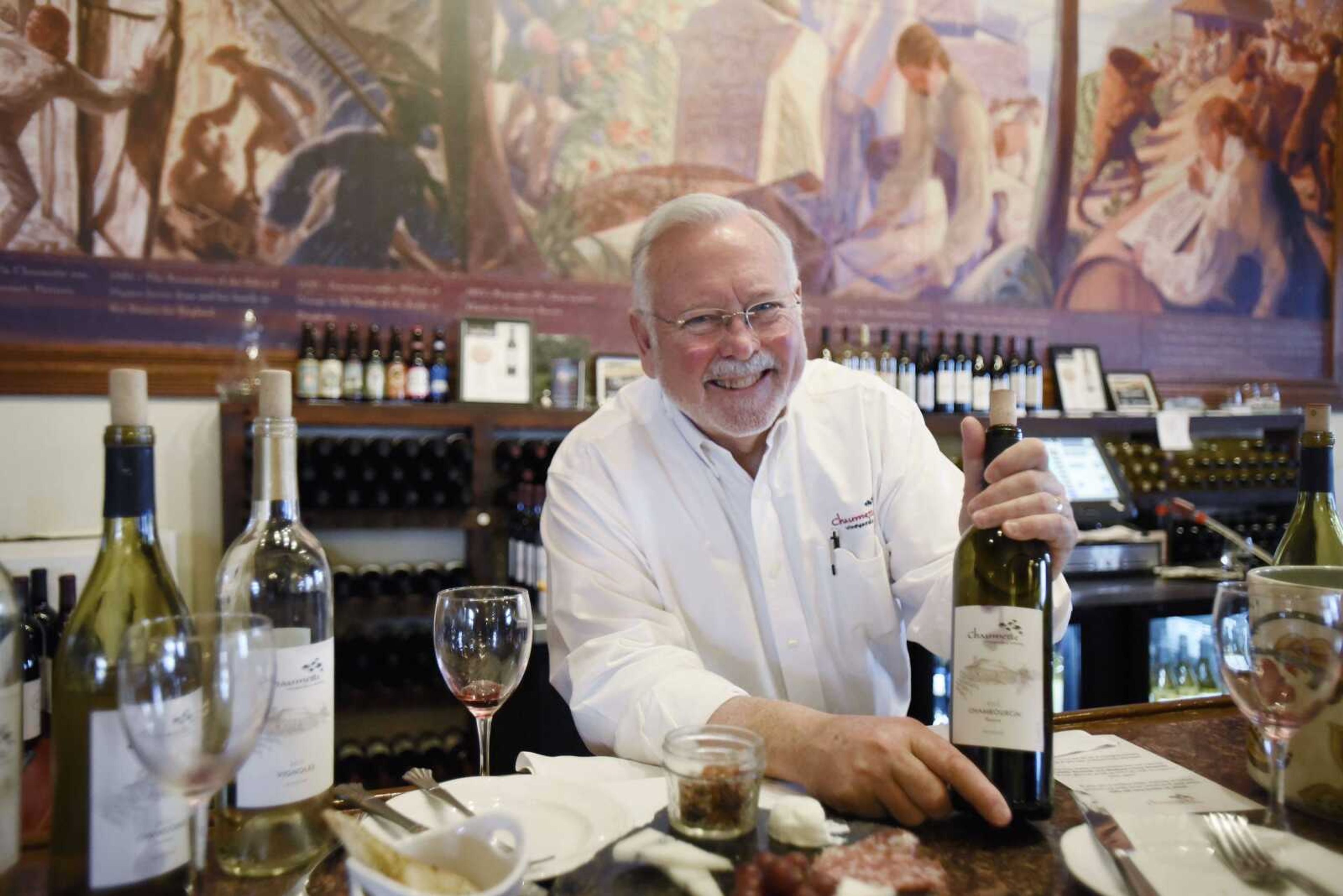
The chardonel grape, a white wine hybrid grape that had been in development for 40 years, was released the same year. Johnson planted the field, and the grapes and his love for the vineyard began to grow.
They started planting in 1992 and continued to plant each year through 2000.
"We jumped in with both feet and we planted quite a bit," Johnson says. "We have just under 30 acres of grapes here, most of which are chardonel."
He also started studying viticulture -- or the science, production and study of grapes -- when they first started the planting. He found he could control the quality of the wine by how he grew the grapes and the specific inputs he would add to affect the quality.
"You can make great wine from great grapes, but you can't make great wine from bad grapes," he says. "So our big focus is in the vineyard, I mean it's in both places really, but we really do focus a lot in the vineyard."
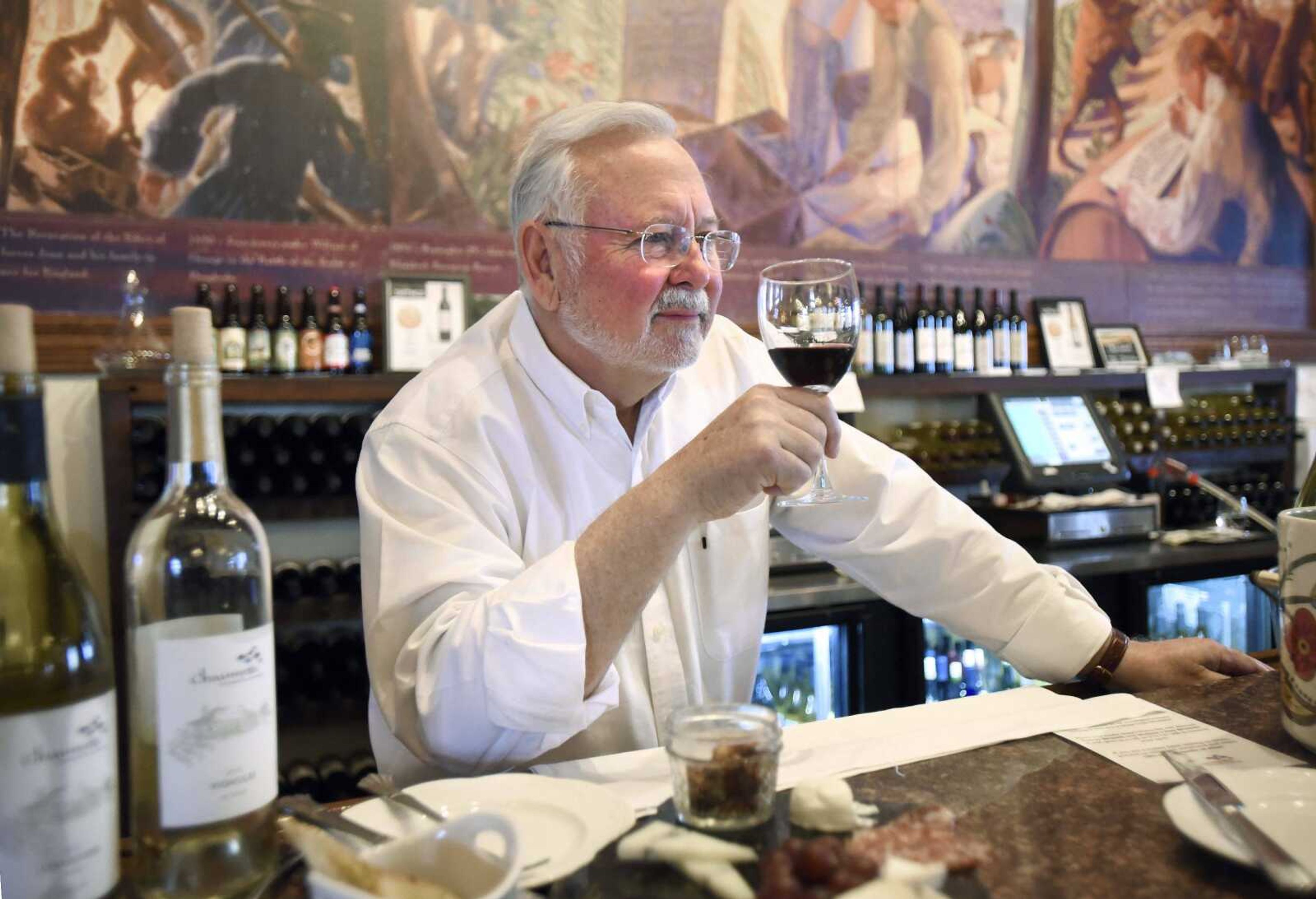
Eventually, Johnson decided he wanted to do something with all those grapes.
"In 2000, I got the itch to make wine, so we got licensed and I bought my first equipment," he says.
It didn't take much time for him to realize how much work there is involved in making wine, so he hired a winemaker in 2001. Once wine production began, the Johnsons decided to build a tasting room on their property. Little did they know, eventually they would be the proud developers of many award-winning wines. Johnson's son, Henry, also ultimately decided he would like to become a winemaker, and has since become the primary vintner at Chaumette.
In 2003 the Johnsons also built a chapel on the property, reconsecrated and renamed St. Vincent's-in-the-Vineyard, as a reconstruction of the all-faith chapel St. David's, which was originally located on the grounds of the Thompson Episcopal Retreat Center in St. Louis County.
"And so I thought, 'Well, if we're going to have a chapel here on the property, we'll probably have some weddings.' And I was right; we had 70 weddings last year."
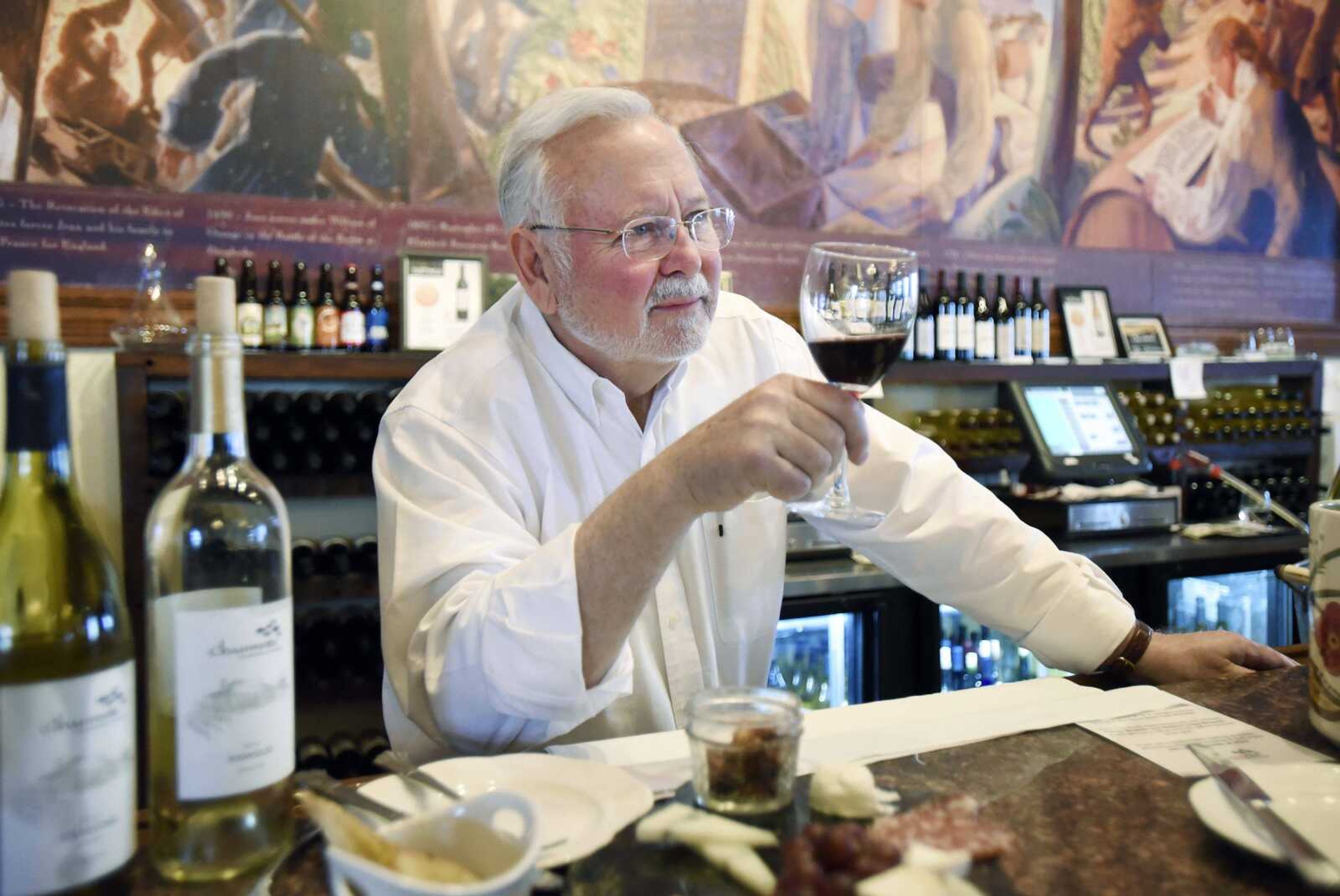
The property now includes a tasting room, full-service restaurant, dining room, banquet hall for weddings and special events, the wedding chapel, a wedding barn and a number of rentable luxury villas for weekend getaways. Johnson says more villas are under construction and soon will be available to accommodate a higher volume of guests.
"We've just been building and changing and improving as we go along," he says.
Although a restaurant wasn't originally a part of his plan, Johnson says the meals served up at Chaumette could be the best quality available between St. Louis and Memphis, Tennessee.
"The food is really very different than anywhere else," he says. "Somehow you have these taste explosions in your mouth."
Rob Beasley, a Louisiana native and graduate of the Culinary Institute of America in Hyde Park, New York, has been the executive chef since summer 2015. He says he strives to be sustainable in his work.
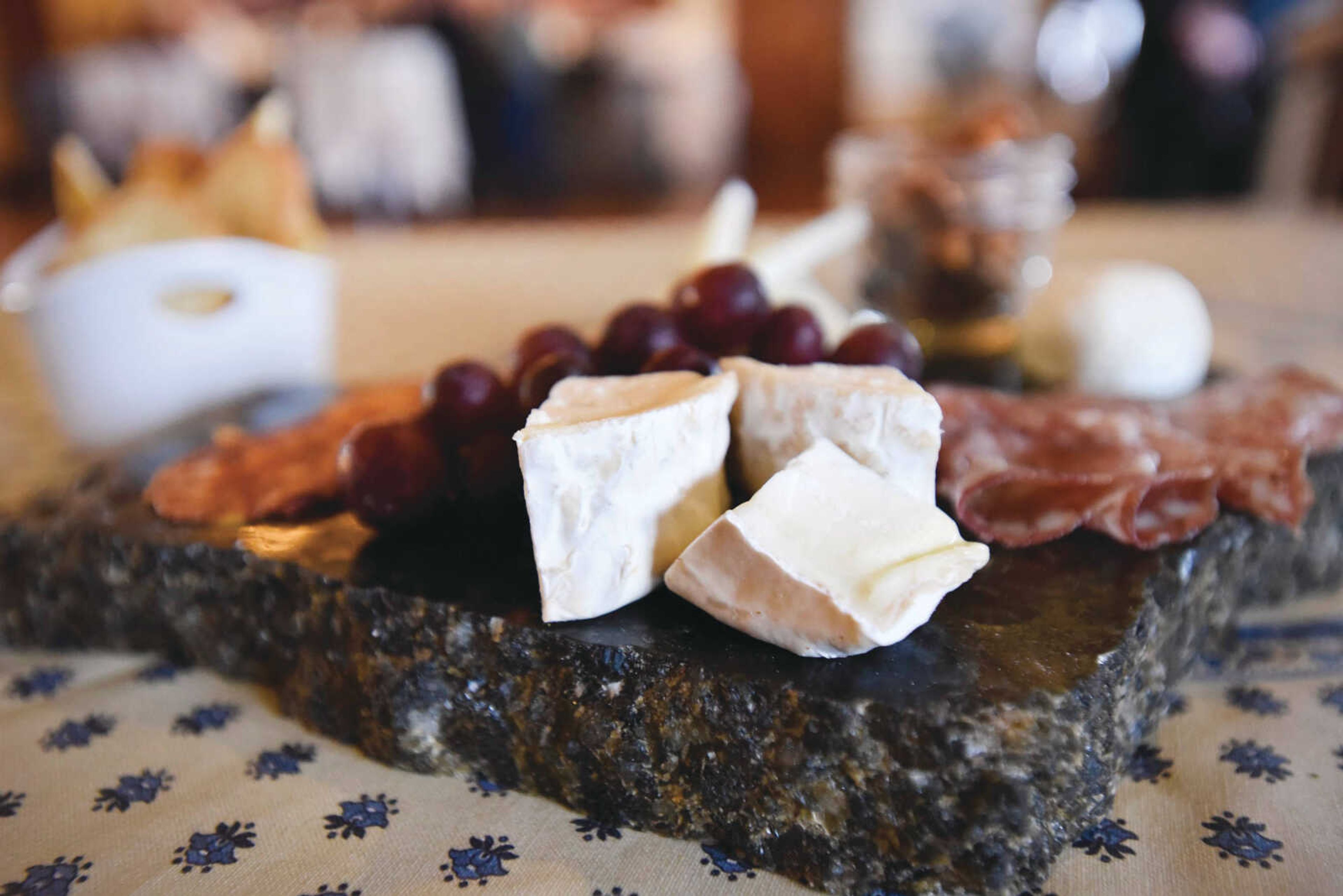
"We'd like to be as sustainable as we can, so we try to buy as much local product [as we can]," he says. "In the Midwest it's not super easy in the winter months, but we're blessed in the spring, summer and fall to have some wonderful farmers that live around that actually dine with us. ... Our approach is to try and buy the best ingredients that we can and treat them with respect."
On the less local end, they purchase all of their fish from Honolulu Fish Company, which is all sashimi-grade and less than 24 hours out of the water.
With an ever-evolving menu developed from Beasley's self-described cooking style of "New American with Cajun-Creole-Southwest influences," he says his overall goal is to accommodate guests to the best of his ability.
"We go to great lengths and efforts to do it, from treating the ingredients with respect," he says. "... We just want the best that we can do, and that's Chaumette everywhere. ... It just exudes excellence, so to sit down and eat, you want it to rival [that quality]."
The name of the winery, Chaumette, is derived from Johnson's family history, part of which is depicted in a mural on the wall behind the tasting counter. In the 1700s, an ancestor named Jean de la Chaumette and three of his four sons moved from Europe to the colony of Virginia. Once he came to Virginia, he decided to Anglicize his last name to Shumate, which is Johnson's mother's maiden name.
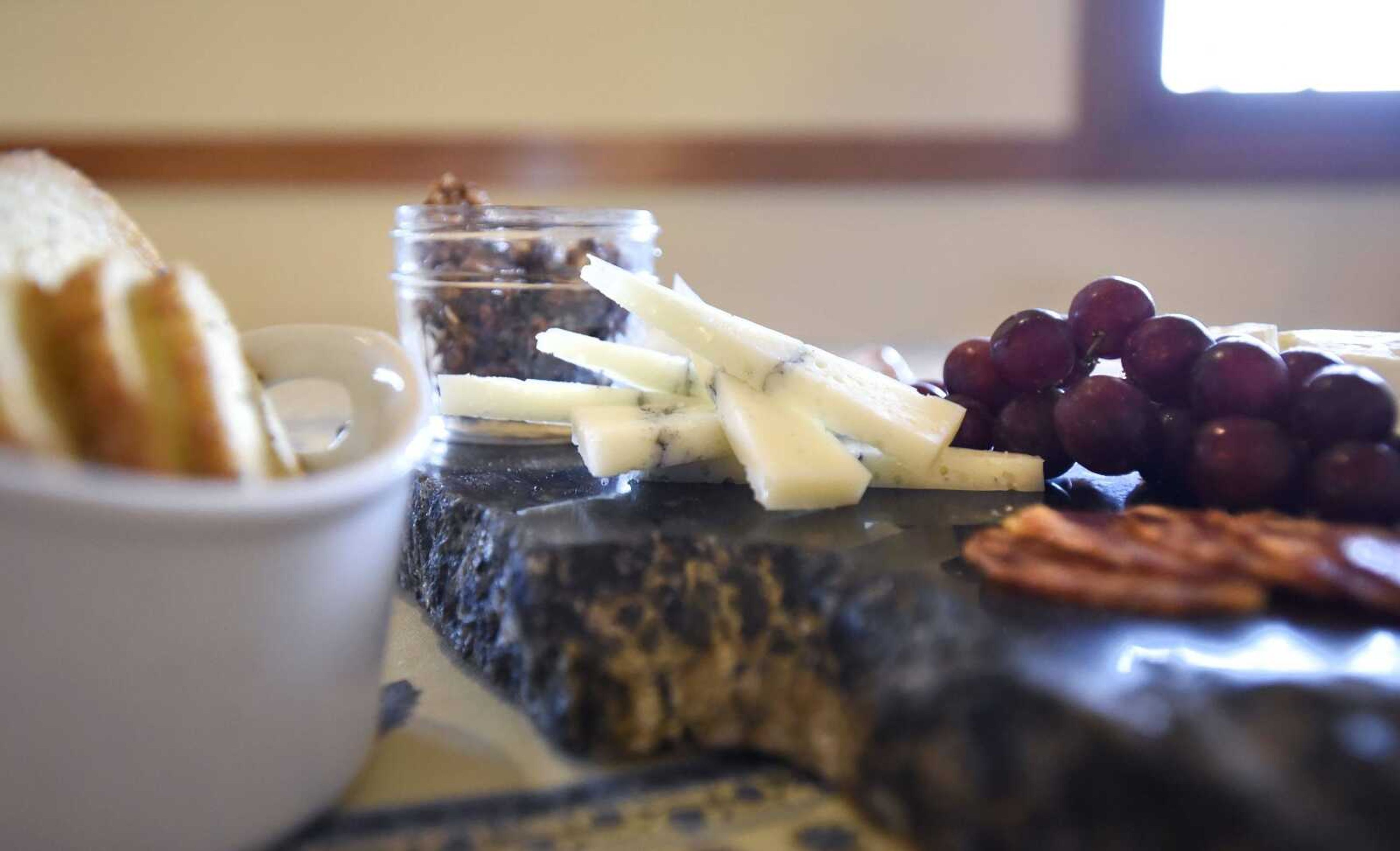
"All of my life I heard this story of my French ancestor Jean de la Chaumette, so when it came time to name this place in French Missouri wine country, it was pretty easy."
Chaumette has a number of details that set it apart from other area wineries, but Johnson says one in particular is the vineyard and winery's initial enterprise, the wine.
"One of the things that's different about Chaumette is we are focused on dry wines," he says. "Most Missouri wineries, practically all Missouri wineries, are focused on sweet wines. That's not us."
Connect with the Southeast Missourian Newsroom:
For corrections to this story or other insights for the editor, click here. To submit a letter to the editor, click here. To learn about the Southeast Missourian’s AI Policy, click here.

